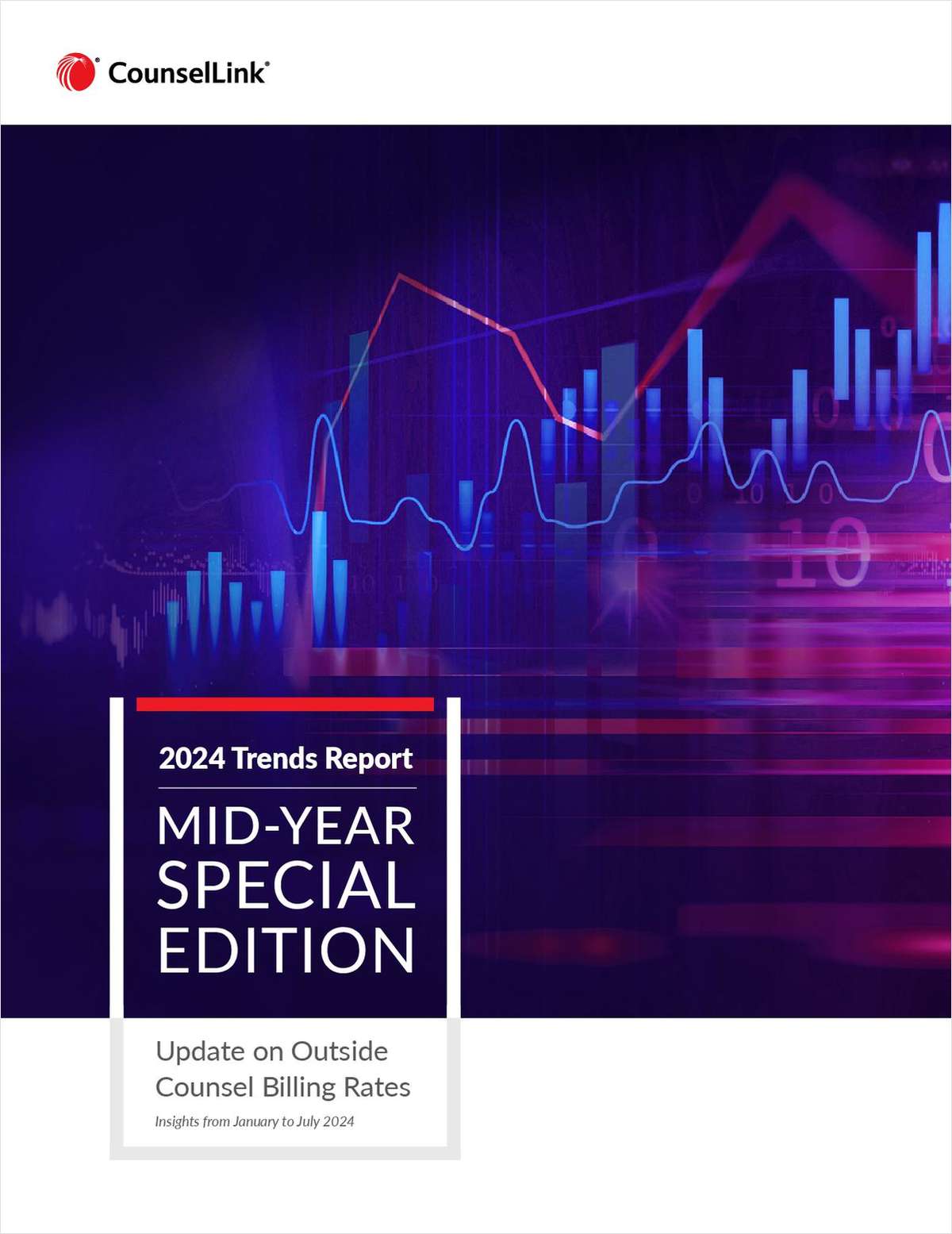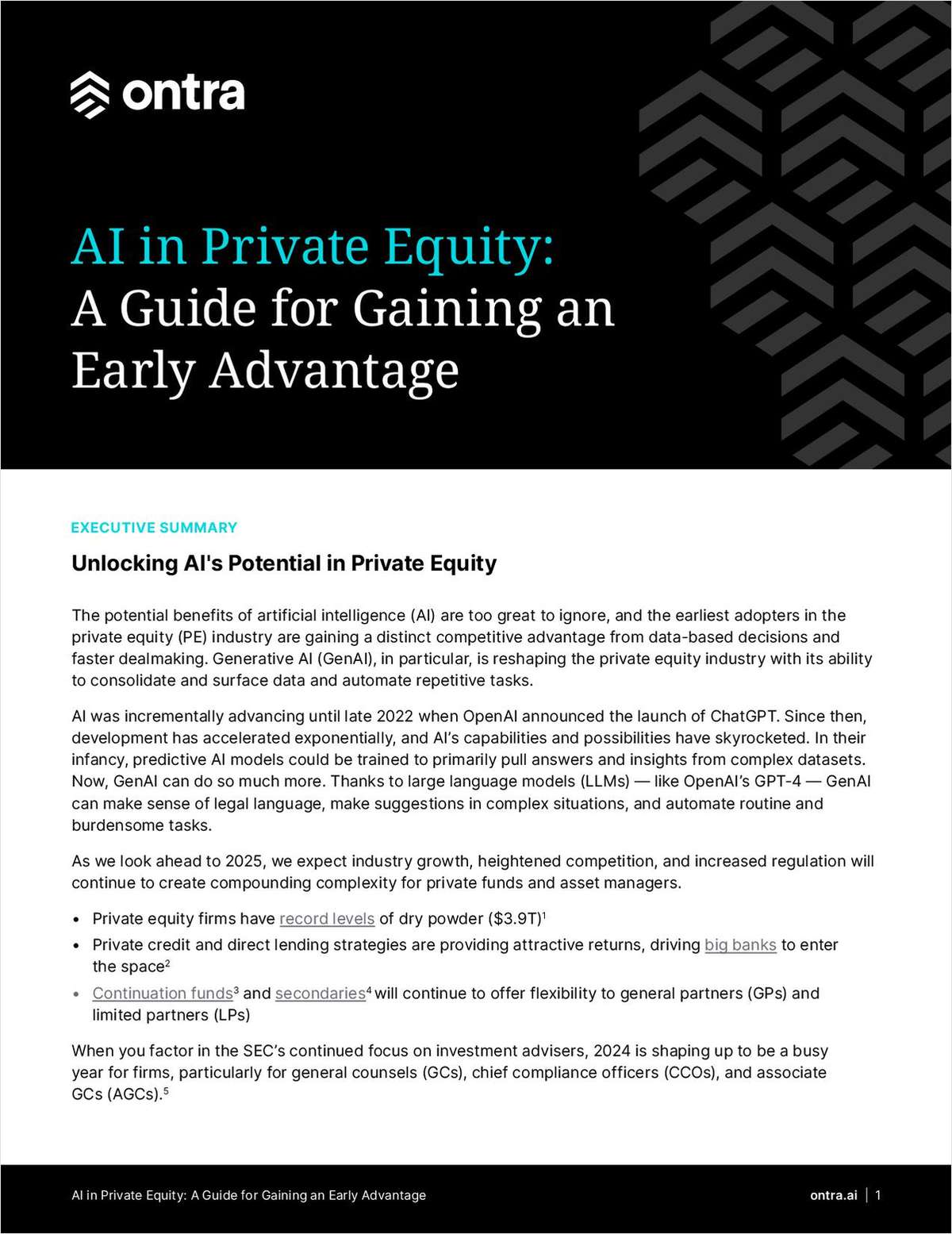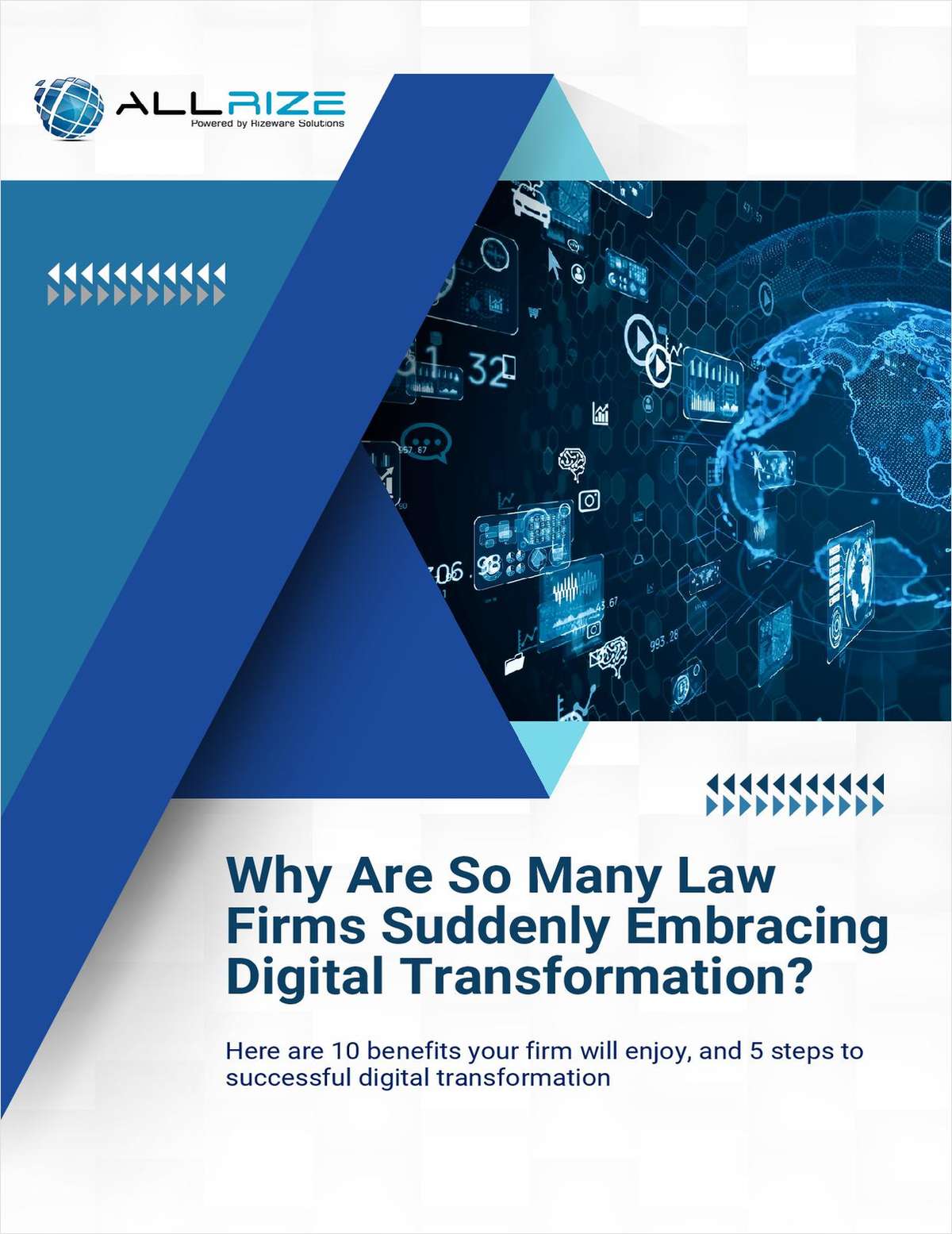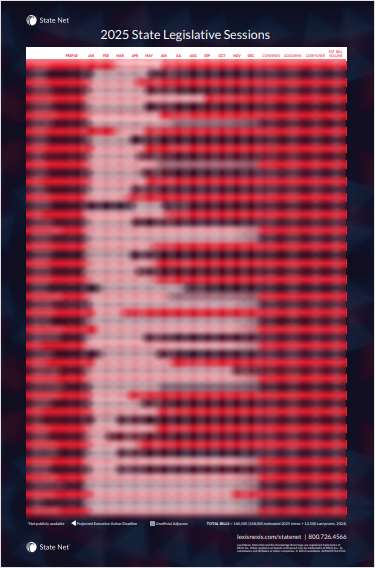0 results for 'McDermott Will & Emery'

Orrick and Dewey Cancel Merger Amid Growing Differences
Orrick, Herrington & Sutcliffe and Dewey Ballantine have aborted their merger amid mounting differences. "We jointly decided that given where we were on certain issues, it was time to decide or move on," said Dewey Chairman Morton Pierce. A source said there were three major sticking points: disagreements over management and governance at the new firm, and concern over Dewey's unfunded retirement benefits and over defecting Dewey partners, more than 10 of whom have left since news of merger talks surfaced.
Lawyer Looms Large in Health Care Fraud Case
Marcus Topel, representing the former CEO of Intermune, highlighted testimony from the company's former general counsel at closing arguments. So did prosecutors.
HP Investigator Takes Plea Deal
A low-level player in the pretexting scandal takes a deal with the feds. What his see-no-evil testimony offers remains to be seen.
Private Military Contractors Count On Crowell Partner
As a lawyer for some of the top private security companies operating alongside U.S. troops in Iraq, a big part of Crowell & Moring partner David Hammond's job is monitoring the growing outrage over those companies' alleged abuses. At least 15 personal injury, wrongful death and product liability cases have been filed, and federal investigators estimate that some $10 billion has been squandered or gone unaccounted for by private companies. So as the war in Iraq drags on, Hammond's practice has grown.
For In-House Attorneys, a 'Limited License' Looks Good
For years, in-house attorneys could pass the bar in one state and work in another state without being licensed there. But nine states now have a "limited license," allowing practice for one company without taking the local bar exam -- and the rest of the states are heading the same way. Not everyone loves the idea, but it frees lawyers from legal limbo, and, according to the Association of Corporate Counsel's John McGuckin Jr., may ease companies' hiring dilemmas.

Multidistrict Pollution Charges Against Oil Companies May Proceed, Federal Judge Rules
A federal judge in New York rejected motions to dismiss massive multidistrict litigation over the alleged contamination of groundwater by the major oil companies. In a decision that involved cases from New York to California to Florida, the judge found plaintiffs presented enough evidence to continue their pursuit of injunctive relief and the cleanup of groundwater contaminated by the gasoline additive known as MTBE.
Circuit Bars Retrial of Two Defendants, Finds Mistrial Decision Was Premature

For In-House Attorneys a �Limited License' Looks Good
For years, thousands of in-house attorneys have been the undocumented aliens of the legal profession. While these lawyers originally passed the bar in one state, they later went to work for a company in another state where they never bothered to get licensed, simply because the local state bar didn't insist on it. The days of a wink-and-a-nod are passing, however, as states move to require that in-house attorneys obtain a "limited license" if they haven't taken the local bar exam.
Digital Age Copyright Fight: Paying Royalties on Webcast Music
Call it the mouse that roared. After 100 years of relative obscurity, the U.S. Copyright Office leapt headlong into one of the hottest regulatory battles in cyberspace. Register of Copyrights Marybeth Peters determined that radio stations must pay royalties for streaming music over the Internet -- even though they pay record labels nothing for broadcasting the identical content over the airwaves.Trending Stories
- 1The Law Firm Disrupted: For Big Law Names, Shorter is Sweeter
- 2Wine, Dine and Grind (Through the Weekend): Summer Associates Thirst For Experience in 'Real Matters'
- 3The 'Biden Effect' on Senior Attorneys: Should I Stay or Should I Go?
- 4'That's Disappointing': Only 11% of MDL Appointments Went to Attorneys of Color in 2023
- 5'You Are Not Alone': 120 Sex Assault Victims Plan to Sue Sean 'Diddy' Combs
Featured Firms
Law Offices of Gary Martin Hays & Associates, P.C.
(470) 294-1674
Law Offices of Mark E. Salomone
(857) 444-6468
Smith & Hassler
(713) 739-1250
More from ALM
- Morgan & Morgan Class Action Attorneys Detail Pathway to Success Within Cybersecurity and Data Privacy Practice 1 minute read
- Holwell Shuster & Goldberg Partners Leverage 'Hostile' Witnesses to Secure $101 Million Verdict Against Walmart 1 minute read
- Legal Speak at General Counsel Conference Midwest 2024: Mike Andolina, Partner, White & Case 1 minute read
Resources

2024 Trends Report Mid-Year Special Edition: Update on Outside Counsel Billing Rates
Brought to you by LexisNexis® CounselLink®
Download Now

AI in Private Equity: A Guide for Gaining an Early Advantage
Brought to you by Ontra
Download Now

Why Are So Many Law Firms Suddenly Embracing Digital Transformation?
Brought to you by AllRize
Download Now

2025 State Legislative Sessions
Brought to you by LexisNexis®
Download Now



